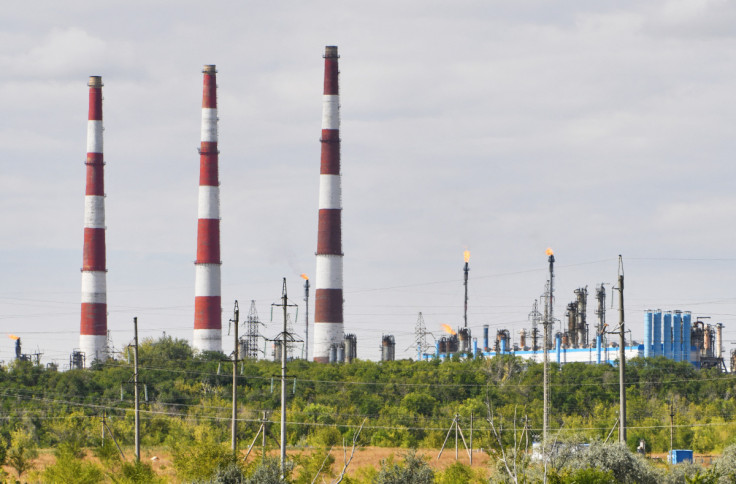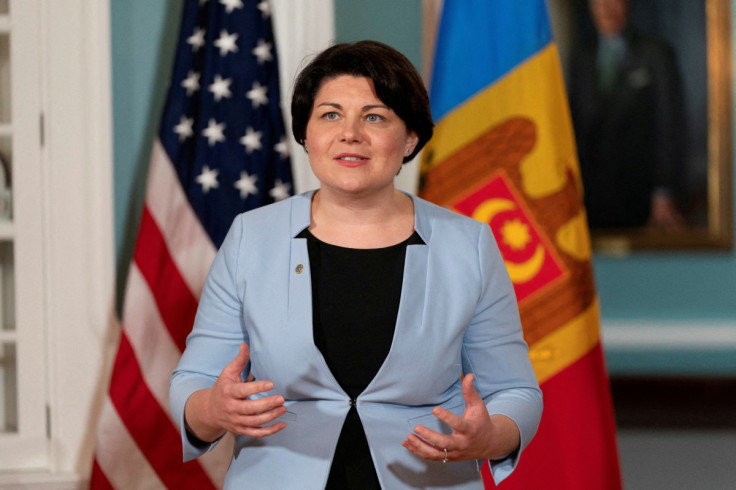Moldova And Ukraine Accuse Russia Of 'Blackmail' As Gazprom Threatens To Reduce Gas Supplies

Moldova and Ukraine on Wednesday accused Russia of "blackmail" after state-run Russian company Gazprom threatened to reduce gas flows to Moldova via Ukraine next week, just as cold weather prompts Europeans to start tapping their inventories.
Europe has been facing an energy supply squeeze this year as Russia has gradually reduced gas flows through several pipelines after the West imposed sanctions on Moscow in response to its Feb. 24 invasion of Ukraine.
Eastern European countries remain more vulnerable to the shutdown of Russian flows and could run out of gas this winter if they cannot find alternative sources of energy.
On Tuesday Gazprom accused Ukraine of keeping gas supplies destined for Moldova, and said it could from Monday start reducing gas supplies to Moldova that pass through Ukraine.
Ukraine has denied withholding Russian gas meant for Moldova.
"Gas blackmail is an established Russian practice that the Kremlin continues to use for geopolitical purposes," Ukrainian Energy Minister German Galushchenko wrote in a statement to Reuters on Wednesday.
He said Gazprom's accusations were groundless and that Ukraine has been a "reliable gas transit country" for Europe.
Moldova's Prime Minister Natalia Gavrilita said Russia had sent no signals that it would stop supplying it with gas, "but the government is ready for any scenario, as Russia continues to use energy resources as a tool of blackmail."
European gas prices rose over possible disruptions in Russian flows via Ukraine.
Russian supply via Ukraine is the last functioning Russia gas corridor to Europe.
Russia used to supply about 40% of Europe's natural gas, mostly through pipelines, but most of those Russian exports have been halted since the war began.
Flows in the Yamal-Europe pipeline, which crosses Belarus and Poland en route to Germany, have been reversed to flow eastward between Poland and Germany since the start of this year and have been declining.
Both the Nord Stream 1 and Nord Stream 2 pipelines, built to supply Russian gas to Europe via Germany, were damaged by blasts and will need major rebuilding.
HARSH WINTER
Moldova relies exclusively on Gazprom for gas imports and is largely dependent on Russian energy.
Moldovan President Maia Sandu said on Monday her tiny country could face a harsh winter because of an "acute" energy crisis that risked stoking popular discontent.
Moldova is one of Europe's poorest countries and has the highest per-capita intake of Ukrainian refugees. It shares a border with Ukraine, a fellow former Soviet republic, and is connected to its power grid.
Russian missile strikes on Ukraine's energy infrastructure has caused blackouts across half of Moldova, according to its government.
Moldova had reserved more than 200 million cubic meters (262 million cubic yards) of gas in Ukrainian storage facilities for the winter, according to Moldova's Deputy Prime Minister Andrei Spinu.
"There is no more room for pressure, blackmail and deceit. Together we will achieve energy security," Spinu wrote on Telegram.
European nations managed to fill up their gas storage levels to above 95% on average this year to survive the winter in the absence of Russian flows. The inventories showed the first signs of withdrawal last week as temperatures dropped across the region.
The Ukrainian gas transmission system operator, GTSOU, said on Tuesday that Gazprom had manipulated the facts "in order to justify the decision to further limit the volume of gas supplies to European countries."
"This is an attempt once again to put pressure politically in exclusively commercial relations," Olga Bielkova, director of government and international affairs at GTSOU, told Reuters on Wednesday.

© Copyright Thomson Reuters 2024. All rights reserved.











